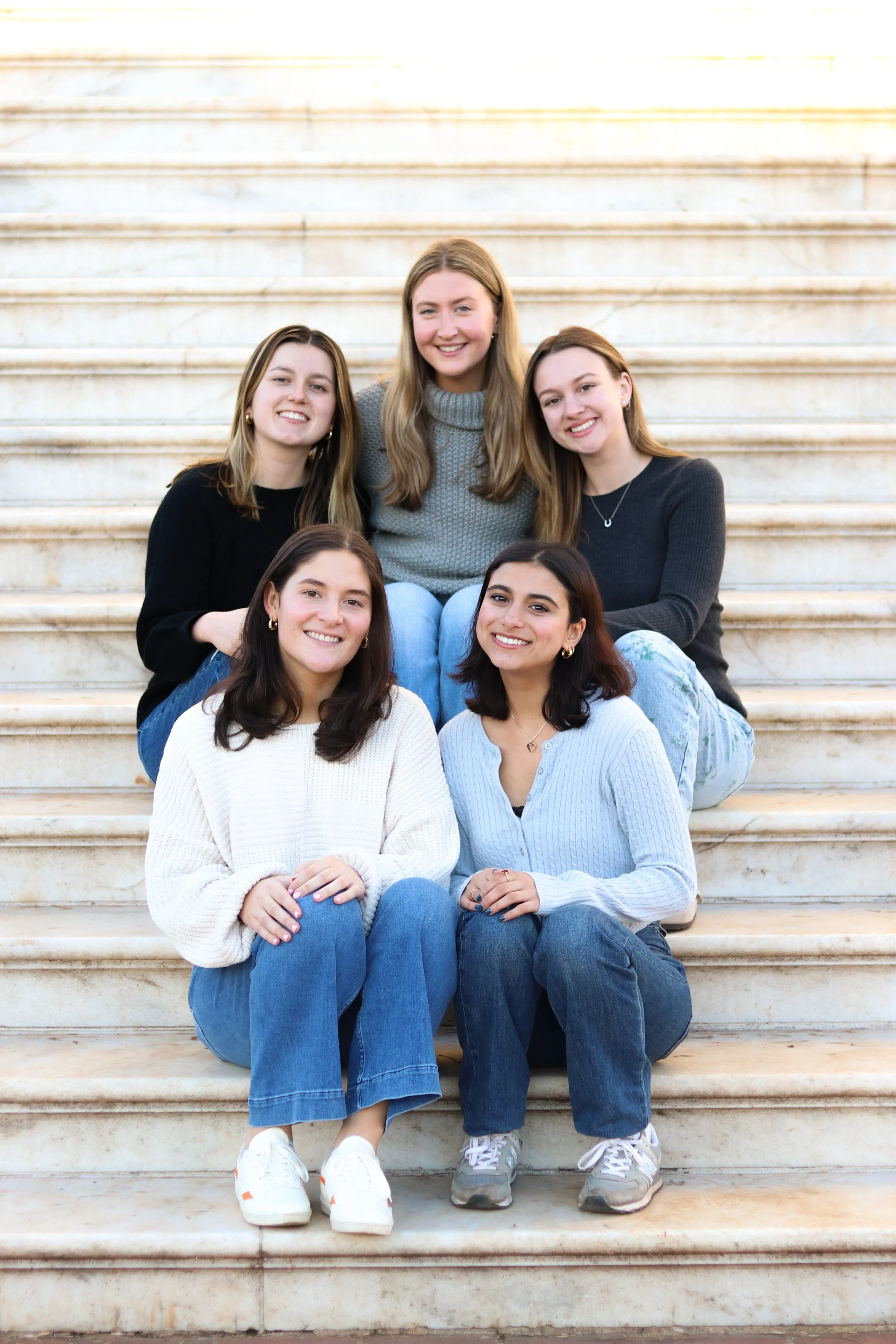One Love
Photography by Jessica Pentel
If you’re reading this, you deserve healthy love.
Hi! We are the executive team of One Love at UVA, a group of students dedicated to promoting healthy relationships around Grounds in honor of Yeardley Love. Yeardley was a student at UVA whose life was tragically cut short when she was killed by her ex-boyfriend in her apartment. Her parents founded One Love with the hopes of teaching young adults the signs of an unhealthy relationship before it escalates. We are committed to educating students so that we can all learn to love better.
A healthy relationship does not mean a ‘perfect’ relationship, but rather a relationship that strives to maintain healthy behaviors that bring out the best in you and your partner. One Love outlines 10 behaviors that signify a healthy relationship: comfortable pace, honesty, respect, kindness, healthy conflict, trust, independence, equality, accountability, and fun. As an executive team, we each chose one of these behaviors that resonated with us most deeply and wrote about how they might manifest themselves in a healthy relationship.
Communication
Both parties in a relationship should find mutual comfort in how often there is communication. Some couples prefer to text all day, while others are okay with only texting a few times a day, but these boundaries should be set with your partner. Communication becomes unhealthy when one party thinks they can contact the other all the time, regardless of previously established boundaries and expectations. Even if one party attempts to justify their behavior (by saying, for example, “I was just worried about you because you hadn’t answered my other texts”), these excuses can reveal a lack of trust, which could lead to controlling behaviors in the future. The key to comfortable and healthy communication in a relationship is to be attentive and considerate of your partner’s feelings. Communicating with your partner should not be stressful.
Independence
In any relationship, it is important not to lose yourself. Even though your significant other is someone you always want to spend time with, it is important to make sure they are not stopping you from doing things on your own too. Both parties should feel as though they are free to pursue what they want while being in the nurturing relationship that supports them.
Respect
Healthy love values respect. In a relationship, each partner sees worth in the other’s beliefs and opinions. There is respect in the other’s individuality by not expecting one’s partner to change. Respect entails loving your partner for who they are as a person. Partners in a healthy relationship will respect each other's boundaries, and hold each other’s autonomy and space in high regard, allowing for both voices to be heard equally in the relationship.
Trust
A healthy relationship is built on trust, the bedrock for building a strong connection. Trust creates a sense of security within a relationship. It implies reliability and dependability. When there is trust, there is a confidence that you can count on your partner and that your partner will not do anything to hurt you or your relationship. You should not have to question your partner’s intentions or whether they have your back. You should feel comfortable enough to open up to them and be vulnerable. Your partner should respect your privacy and consider your emotions. They should be honest with you and follow through on their promises and commitments. Trust is essential in a relationship, allowing for mutual emotional support and effective communication. In a healthy relationship, trust should come easily.
Healthy Conflict
In a healthy relationship, both parties should feel like they are able to tell their partner if something is bothering them and the other person should actively listen to these concerns. Having small arguments every once in a while doesn’t mean that a relationship is not healthy, as long as both people feel heard and respected in these conversations. If you ever feel like your partner does not listen to your qualms or respects what you’re saying, you should be able to voice these issues. If your conflict becomes emotionally or physically abusive, reach out to a friend or loved one for help. Sometimes emotional abuse can be difficult to identify. Everything from gaslighting, lying, volatility, intensity, and jealousy can be considered emotional abuse.
Our mission at One Love is to connect with our community, and to, of course, spread healthy love. If you’re reading this, we hope you know that you are deserving of healthy love because above all, love should feel good!
One Love, University of Virginia
Please reach out to us or to one of the following resources if you find yourself in a situation where you might need support:
Love is Respect
www.LoveIsRespect.org | 1-866-331-9474 or 1-866-331-8453 | text “loveis” to 22522
If you want to talk to someone, need advice about your relationship or a loved one’s relationship, or if you have legal questions.
National Domestic Violence Hotline
1-800-799-SAFE (7233) | www.thehotline.org
NDV Hotline provides lifesaving tools and immediate support to enable victims to find safety and live lives free of abuse. Call if you would like more resources or information, or if you are questioning unhealthy aspects of your relationship.
National Sexual Assault Hotline
1-800-656-HOPE | www.rainn.org
The National Sexual Assault Hotline provides basic information for victims or friends/family of victims, short-term crisis intervention and support, answers to questions about recovering from sexual assault, and resources to assist with the reporting process via hotline or chat.
The Trevor Project
www.thetrevorproject.org/ | 1-866-488-7386
The Trevor Project is the leading national organization providing crisis intervention and suicide prevention services to lesbian, gay, bisexual, transgender and queer (LGBTQ) young people.
Connect With Us
To follow IfYoureReadingThis at UVA on Instagram, get in touch with our chapter, and learn about more resources available to University of Virginia students, visit our chapter’s homepage.

